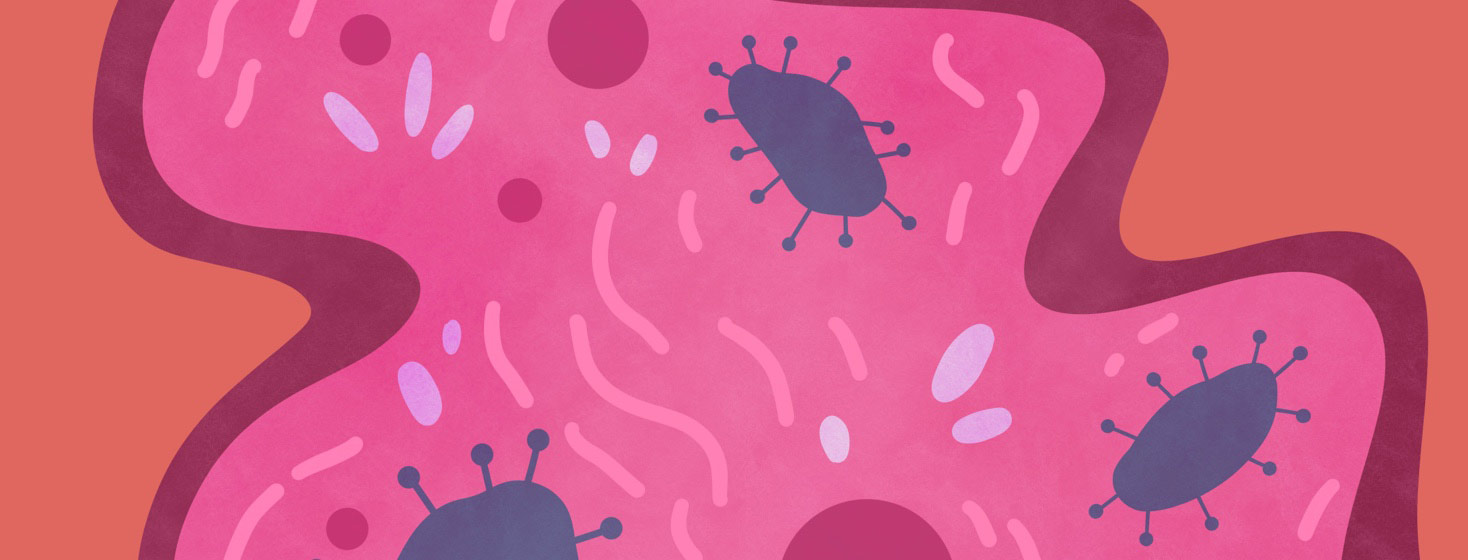The Gut Microbiome and MG Connection
Reviewed by: HU Medical Review Board | Last reviewed: January 2024 | Last updated: January 2024
There are trillions of tiny living things that exist on or in your body. These tiny living things are called microbes because they can only be seen under a microscope. Microbes include bacteria, fungi, and even viruses. Together, the microbes found in the gut (stomach and intestines) are called the gut microbiome.1,2
Your microbiome plays an important role in keeping you healthy. The microbes found in your gut help with digesting food. The gut microbiome is also linked to immunity. Changes or disturbances in the gut microbiome have been linked to many diseases.1
The microbiome and MG
Based on existing research, there seems to be a connection between the microbiome and myasthenia gravis (MG). A lot is still unknown. But research suggests that MG can have an effect on the gut microbiome. Also, certain changes in the gut microbiome could increase the risk of developing MG.3
This is likely because MG is an autoimmune disease, and the gut microbiome plays a role in immunity. Abnormal changes in the microbiome can cause the immune system to not work properly. Research shows that changes in the gut microbiome are linked to certain autoimmune diseases. But these changes can be different for different diseases.1,3
Researchers are looking at the differences in the gut microbiomes of people with and without MG. This can tell them whether certain microbes are more or less likely to be present in people with MG. In a 2023 study, researchers found that certain microbes increased the risk for developing MG. They found that people who had a bacteria called Lachnoclostridium were more likely to develop MG.1,3,4
The researchers also found a group of microbes that decreased the risk for developing MG. These include bacteria called Clostridiaceae1, Defluviitaleaceae, Enterobacteriaceae, and an unknown group.1,3,4
Finally, they found that having MG is linked to a decrease in certain gut microbes. This includes bacteria called Barnesiella. These microbes are important for keeping your gut healthy.1,3,4
What affects the microbiome?
There are things you can do to shore up your microbiome. Some changes in diet can help build and maintain a healthy gut microbiome. While having MG may affect your diet by making it harder to chew certain foods, it may help to focus on eating foods that will also help the gut microbiome.1,2
Probiotics are foods that contain microbes that help create a healthy gut microbiome. Yogurt, some types of cheese, and fermented foods are examples of probiotic foods. These foods may improve immunity by creating a healthy gut microbiome.1,2
Prebiotics are foods that are used as energy by the gut microbiome. Prebiotics can be found in foods like whole grains. Both probiotics and prebiotics also come in supplement form. Before you change your diet or start taking any new supplements, talk to your doctor. They can suggest options that would work best for you.1,5
Exercise and antibiotics are 2 other things that affect the gut microbiome. Regular exercise can increase healthy bacteria in the gut. On the other hand, taking antibiotics too often can destroy healthy bacteria in the gut.2
A better understanding of how the gut microbiome affects MG and other autoimmune diseases could lead to new therapies. These new therapies may try to increase levels of microbes that are important for health and immunity. It is possible that particular gut microbiomes may reduce the symptoms of MG.1

Join the conversation